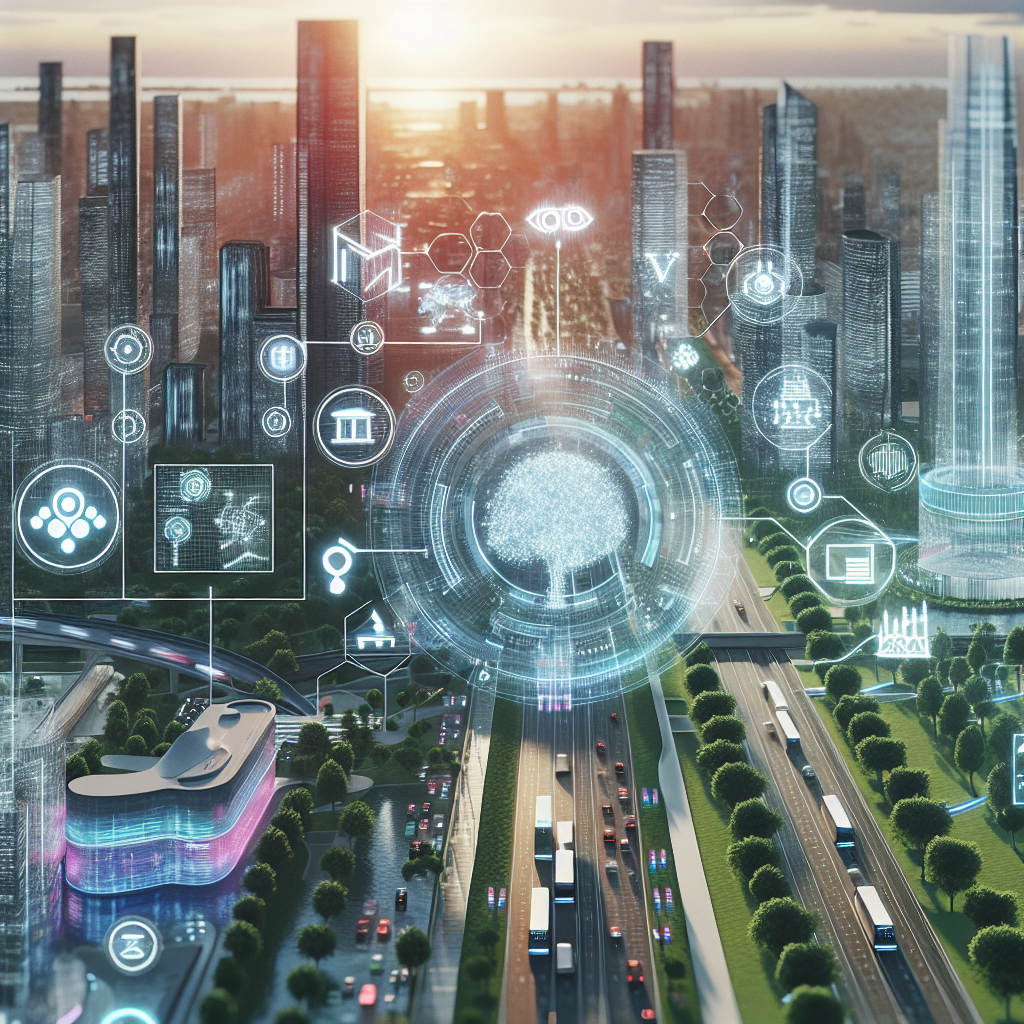Artificial Intelligence (AI) is transforming the way we plan and design our cities. With the rapid advancements in technology, urban planners are now able to harness the power of AI to create more efficient, sustainable, and livable urban environments. From optimizing traffic flow and energy consumption to predicting future population trends, AI is revolutionizing the field of urban planning.
One of the key ways in which AI is being utilized in urban planning is through the use of predictive analytics. By analyzing vast amounts of data, AI algorithms can help planners make more informed decisions about how to design and develop cities. For example, AI can analyze traffic patterns and predict where congestion is likely to occur, allowing planners to implement solutions to alleviate traffic flow before it becomes a major issue.
AI is also being used to optimize energy consumption in cities. By analyzing data on energy usage and weather patterns, AI algorithms can help cities reduce their energy consumption and lower their carbon footprint. For example, AI can analyze data from smart meters to identify patterns of energy usage and recommend strategies for reducing energy consumption during peak times.
Another way in which AI is transforming urban planning is through the use of virtual reality (VR) and augmented reality (AR) technologies. These technologies allow planners to create virtual models of cities and simulate different scenarios to test the impact of proposed developments. This can help planners identify potential problems and opportunities before they occur, saving time and resources in the planning process.
AI is also being used to predict future population trends and demographics. By analyzing data on birth rates, migration patterns, and other factors, AI algorithms can help planners anticipate changes in population size and composition. This information can be used to inform decisions about where to build new housing, schools, and other infrastructure to accommodate future growth.
One of the most exciting applications of AI in urban planning is the development of autonomous vehicles. By using AI algorithms to control vehicles, cities can reduce traffic congestion, improve safety, and enhance mobility for residents. Autonomous vehicles can also help reduce the need for parking spaces, freeing up valuable land for other uses.
Overall, AI is revolutionizing the field of urban planning by providing planners with powerful tools to analyze data, predict trends, and optimize city design. By harnessing the power of AI, cities can create more efficient, sustainable, and livable urban environments for residents.
FAQs:
1. How is AI being used in traffic management?
AI is being used in traffic management to analyze traffic patterns, predict congestion, and optimize traffic flow. By analyzing data from sensors and cameras, AI algorithms can help cities implement strategies to reduce congestion and improve traffic flow.
2. How is AI being used to reduce energy consumption in cities?
AI is being used to analyze data on energy usage and weather patterns to help cities reduce their energy consumption. By identifying patterns of energy usage and recommending strategies for reducing consumption, AI algorithms can help cities lower their carbon footprint and save money on energy costs.
3. How is AI being used to predict future population trends?
AI is being used to analyze data on birth rates, migration patterns, and other factors to predict future population trends. By using this information, planners can make informed decisions about where to build new housing, schools, and other infrastructure to accommodate future growth.
4. How is AI being used in the development of autonomous vehicles?
AI is being used to control autonomous vehicles, which can help reduce traffic congestion, improve safety, and enhance mobility for residents. By using AI algorithms to control vehicles, cities can create more efficient and sustainable transportation systems.
5. How is AI being used in urban design?
AI is being used in urban design to create virtual models of cities, simulate different scenarios, and test the impact of proposed developments. By using VR and AR technologies, planners can identify potential problems and opportunities before they occur, saving time and resources in the planning process.

